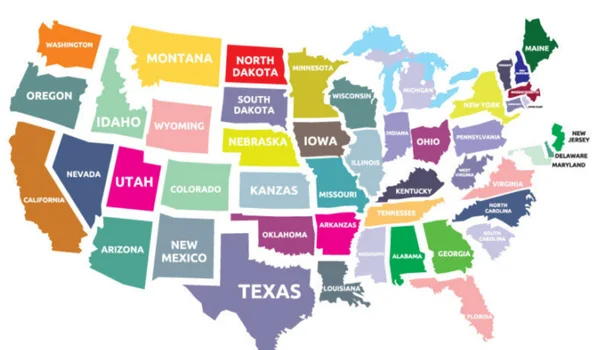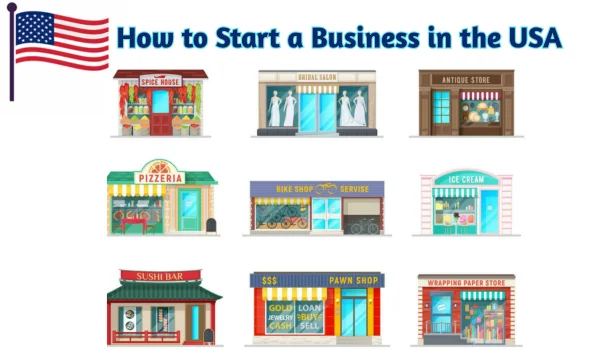Launching a startup is exciting — and choosing where to launch it can make a big difference. Different U.S. states offer varied mixes of tax policies, talent, costs, infrastructure and startup-ecosystem support. Here’s a breakdown of top 10 states in 2025 and why they stand out — plus some extra details and FAQs to help you decide.
✅ What makes a “startup-friendly” state?
Before the list, it’s useful to know what criteria matter:
- Access to capital (VCs, angel investors, state funds)
- Skilled talent pool, universities and research-infrastructure
- Reasonable cost of doing business (office/rent/living/wages)
- Business-friendly regulatory/tax environment
- Infrastructure: broadband, transport, logistics
- Ecosystem support: mentors, incubators, coworking, state programs
- Growth & survival rates of new businesses
Sources suggest that states with low corporate tax, strong economy, abundant workers and affordable business costs tend to rank well.
Also, recent rankings (e.g., WalletHub, SimplifyLLC) highlight access to capital, startup density and business survival among key metrics.
🌟 Top 10 States for Startups in 2025

Here they are (in no strict numeric ordering). I’ll list what makes each special for a startup.
Florida
Why it stands out:
- Ranked #1 in the WalletHub “Best States to Start a Business” for 2025.
- No personal state income tax (for many residents) which can attract entrepreneurs.
- Strong growth in new business establishments, and access to Latin American markets via Miami.
Good for you if: you want a warm-weather state, good consumer market, moderate cost base and less tax burden on individuals.
Potential caveats: Costs (commercial real-estate, wages) in major metros can be higher; if you need deep tech-ecosystem maybe other states are stronger.
Georgia
Why it stands out:
- Strong business environment, solid access to workforce & infrastructure (Atlanta metro is a major hub).
- Ranked #2 in WalletHub’s 2025 list.
Good for you if: you’re open to southeastern US, want good logistic connectivity (airport/hub), lower cost compared to coastal hubs.
Potential caveats: While strong, the size of capital/investment ecosystem may not match the largest coastal states.
Utah
Why it stands out:
- Ranked #3 in WalletHub for “Best States to Start a Business” in 2025.
- A rising tech hub (e.g., “Silicon Slopes” around Salt Lake City) with good access to talent.
Good for you if: you want a balance of cost + talent + growth potential in a less-crowded region.
Potential caveats: Depending on industry, you might find fewer massive VC firms compared to e.g. California.
Texas
Why it stands out:
- Ranked high in many “best states for business” lists (e.g., CNBC lists).
- No personal income tax on individuals; large economy; major cities like Austin have vibrant startup ecosystems.
Good for you if: you plan to scale, maybe raise external capital, want access to a big talent pool and business-friendly environment.
Potential caveats: Some regions have higher competition, property/office costs may be rising; you’ll still need to pick the right city inside Texas.
Idaho
Why it stands out:
- Ranked #5 in WalletHub’s “Best States to Start a Business” 2025.
- Lower cost base; growing business environment.
Good for you if: cost control is high priority, you’re comfortable being a bigger fish in a smaller-scale ecosystem.
Potential caveats: Less capital and fewer large-scale exits compared to the big coastal hubs; depending on niche, you may need to look outside state for investor networks.
Oklahoma
Why it stands out:
- Ranked #6 in WalletHub 2025 list.
- Very low business-cost ranking (good cost environment).
Good for you if: budget is tight, you want a less crowded startup scene with incentive programs.
Potential caveats: Fewer venture-capital firms and less globally visible startup ecosystem, which could affect scale-up and exit options.
Nevada
Why it stands out:
- Ranked #7 in WalletHub’s list.
- Some favourable tax and regulatory settings; increasingly visible in business-friendly listings.
Good for you if: you want access to western US, possibly lower cost alternative to California, less tax burden.
Potential caveats: Still less mature startup ecosystem compared to major hubs, labour pool may be more limited in certain high-tech specialties.
Colorado
Why it stands out:
- Ranked #8 in WalletHub’s list.
- Strong talent pool, good quality of life (which helps attract talent), growing tech & clean-tech sectors.
Good for you if: you care about climate/green sectors, want a great lifestyle for yourself or employees, access to outdoor recreation.
Potential caveats: Cost of living and salaries may be higher; competition for talent increasing.
Arizona
Why it stands out:
- Ranked #9 in WalletHub list.
- Good climate, growing metropolitan areas, less saturated market than major coastal hubs.
Good for you if: you want western location, moderate cost, potential to scale in less competitive environment.
Potential caveats: May need to import more specialized talent; investor networks may be less dense than top-tier hubs.
Kentucky
Why it stands out:
- Ranked #10 in WalletHub’s 2025 ranking for new-business friendly states.
- Lower cost of living and doing business; may offer good opportunities for bootstrapped startups.
Good for you if: you want to launch a lean venture, keep overhead low, are comfortable outside large tech hubs.
Potential caveats: Still building ecosystem in some sectors; may need to rely on remote networks/investors.
🧭 How to pick the right state for you
While the list above is helpful, your ideal state depends on your specific startup, industry and goals. Ask yourself:
- Where is your target market? Local/regional/national/international?
- What talent & skills do you need? Are universities/research institutions nearby?
- What is your cost tolerance (rent, wages, taxes, regulatory burdens)?
- Do you plan to raise external capital (VCs/angels) or bootstrap?
- Do you care about lifestyle (weather, cost of living, quality of life) for yourself and employees?
- Are there specific state incentives, grants or programmes for your industry?
- What is your time-horizon for growth (e.g., quick MVP vs scale-fast vs long term steady)?
❓ Frequently Asked Questions (FAQs)
Q1: Does the best “state for startups” guarantee my business will succeed?
No — picking a favourable state helps tilt the odds in your favour (costs, support, talent), but business model, execution, market fit and team still matter most. The environment is a facilitator, not a substitute.
Q2: Can I incorporate my startup in one state but operate (or move) in another?
Yes — many companies incorporate in states like Delaware for legal/investor-friendly reasons but operate in a different state. However: you’ll still deal with operating state’s taxes, registration requirements, and possibly foreign entity registration. Always check state laws.
Q3: If I’m bootstrapping (small capital), what state features should I prioritise?
For bootstrapped startups: low cost of doing business (rent, wages), startup-ecosystem support (mentors, incubators), manageable regulation and a decent local talent pool. States like Idaho, Oklahoma or Kentucky from our list may fit well.
Q4: If I aim to raise venture capital and scale fast, which state features matter?
You’ll want strong access to investor networks, ease of forming equity and stock options, good talent pool (especially technical/skilled), and a business-friendly legal environment. States with large ecosystems (Texas, Colorado, Florida) might offer better support.
Q5: How often do these state-rankings change and how much should I rely on them?
They do change — depending on year, metrics, economic shifts and state policies. Use rankings as one data point not the full decision. Dig into current incentives, tax laws, cost trends, ecosystem health. A state ranked #10 today might improve, and a top state may face new cost pressures.
🔍 Final Thoughts
Location choice is an important decision but not the only one. Picking the “right” state can reduce friction, improve your odds and align your startup for growth. But your idea, execution, market and team still dominate.
From our list above:
- If you’re looking for cost-efficient, less competitive environments: consider states such as Kentucky, Oklahoma, Idaho.
- If you are aiming for scale + external investment: states like Texas, Florida, Georgia or Colorado may make sense.
- If you lean towards tech/talent-rich regions: Utah stands out, and other states not in top 10 may also suit (depending on niche).


